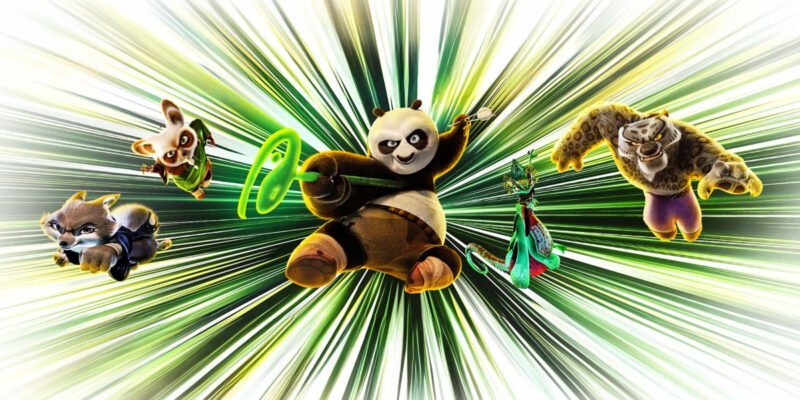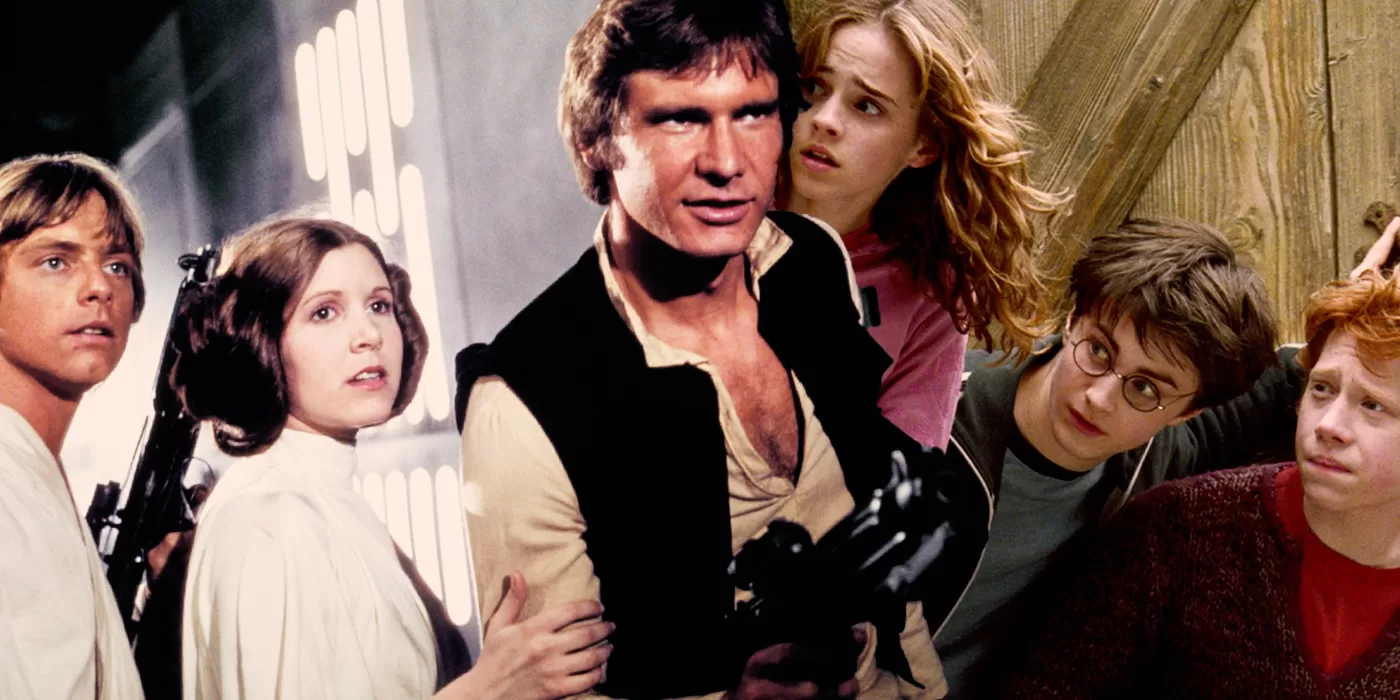Warning: This review contains spoilers for Kung Fu Panda 4.
Returning a legacy animated franchise to the screen always comes with a certain amount of risk. That risk is greatly increased when the core (and incredibly talented) voice cast is replaced so the audience can become familiar with the players of the future. Such is the case with Kung Fu Panda 4, which sidelines the likes of Angelina Jolie‘s Tigress, Jackie Chan‘s Monkey, Lucy Liu‘s Viper, and Seth Rogen and David Cross‘ Mantis and Crane respectively.
Known as the Furious Five, the quintet of kung fu fighters has been a highlight of the previous installments, brilliantly brought to life by the veteran actors. The team’s dynamic with Jack Black‘s Dragon Warrior Po is so seamless that they become as crucial to the franchise as Master Shifu (Dustin Hoffman), the wise and surly red panda.
The studio’s departure from a key element that made the franchise what it is today elicits confidence in the direction that the series is headed that ends up not being completely unfounded. That’s not to say that Kung Fu Panda 4 doesn’t hedge some bets on moments steeped in nostalgia that don’t always turn out as planned. Still, the third sequel manages to stand on its own legs while making a small footprint in the wake of its lofty predecessors — something the film tells us we will learn to appreciate.
‘Kung Fu Panda 4’ Review: An Installment That Warrants a Return to the Big Screen
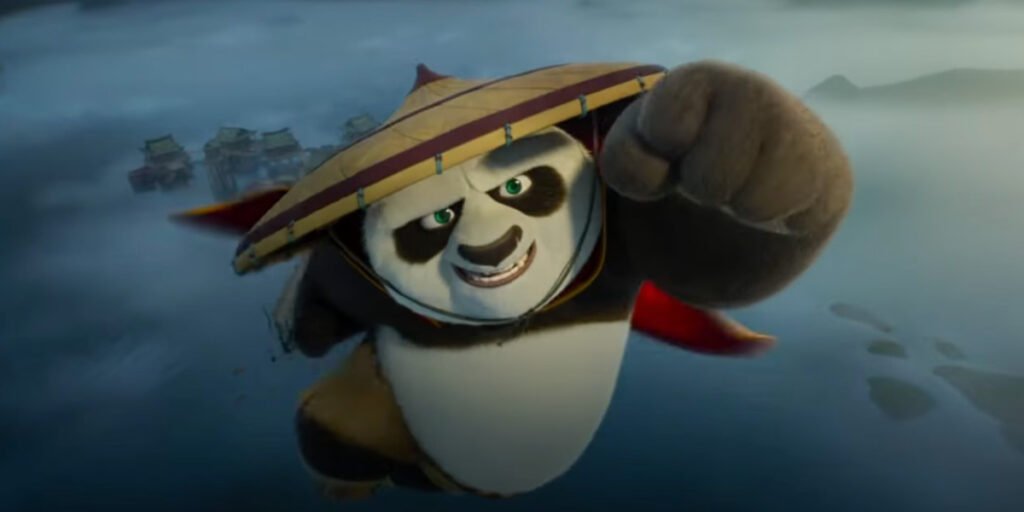
It’s not long before the film reveals all members of the Furious Five have set out on solo missions across the land and the time has come for Po to ascend to the position of Spiritual Leader of the Valley of Peace (roughly the amount of time it takes to bring down a giant manta ray). This title comes with a lifetime of contemplation, the need to spout brilliant logs of wisdom in times of need (Po fails to do this numerous times), and, most importantly, choosing and training a successor to the Dragon Warrior mantle.
After spending most of his life without a purpose besides eating his father’s, Mr. Ping (James Hong), secret ingredient soup, earning the title of kung fu master, and becoming akin to a celebrity is of utmost importance to Po. By passing the Dragon Warrior role to another, Po would feel adrift, lacking the sense of fulfillment and identity that the title provides.
For this reason, he repeatedly shirks off picking a successor, insisting that through divine interpretation he remains the warrior of prophecy. The story picks up when it’s revealed that Tai Lung (Ian McShane) has returned from the spirit realm and hassled a village for their silver.
Simultaneously, the thieving fox-burglar Zhen (Awkwafina) attempts to liberate several of the Jade Temple’s most precious artifacts, resulting in a few fun callbacks to past installments like Po twirling a blade spun at him into the ground similar to Master Shifu’s first encounter with Tai Lung in Kung Fu Panda and a mishap with, you guessed it, the Urn of Whispering Souls.
The Cast Packs Enough Punch To Warrant the Loss of the Furious Five
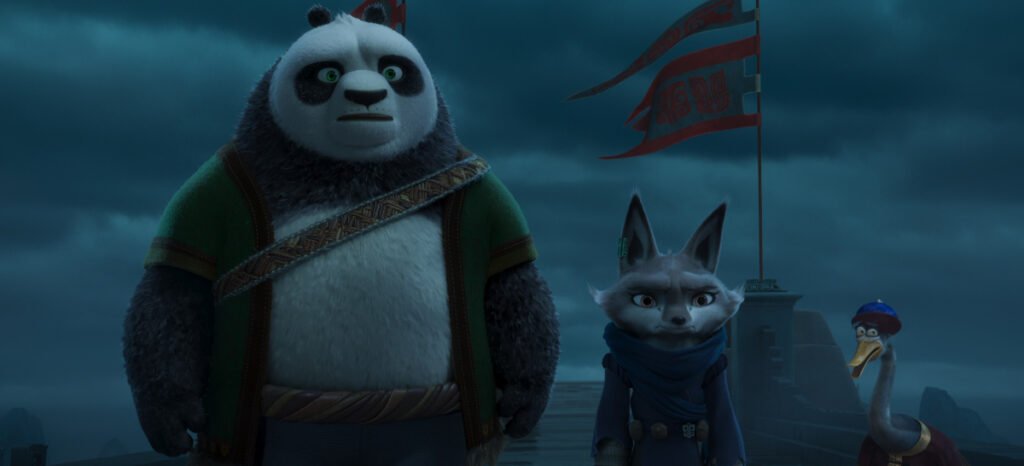
Awkwafina’s Zhen immediately makes a statement as she effortlessly goes toe to toe with the panda master, showing immense martial arts prowess before ultimately being apprehended and sloughing off to a nearby prison. Here, she reveals to Po that the recent Tai Lung sightings are the work of a shapeshifter known as The Chameleon (Viola Davis).
Viola Davis brings a performance just as menacing as McShane’s in the original film, cementing The Chameleon as a top villain in the franchise. However, her story ultimately lacks the same depth that made Tai Lung such an intimidating threat.
In what is hailed as “one last adventure” before officially choosing a successor to his mantle and ascending to Spiritual Leader, Po heads off to Juniper City with Zhen. One of the strongest aspects of Kung Fu Panda 3 is the dynamic between Po’s adopted father — the goose restauranteur, Ping (Hong) — and his biological father Li Shan (Bryan Cranston). Unsurprisingly, this dynamic is carried through to 4, where the pair are again worried sick about their son and this time set off together to ensure his safety.
Hong and Cranston effortlessly succeed in both their comedic timing and ability to sell the “worried parent” who would (and do) easily endanger themselves to protect the most precious thing in their lives. My mother would act in this vein, so I felt a tenderness inside myself when either of the two fumbled their way into solving a situation.
Black and Awkwafina grow a similar chemistry through charming back-and-forth exchanges; the naive joy of Po shining against the abrasive, realistic mentality of Zhen. The playfulness between them and the relationship they develop is highlighted by the constant reminder of Po’s need to find and train a successor. While Zhen seems to be the obvious choice, the film repeatedly casts a dark shadow of doubt over her.
Newcomers Viola Davis and Ke Huy Quan Steal the Show
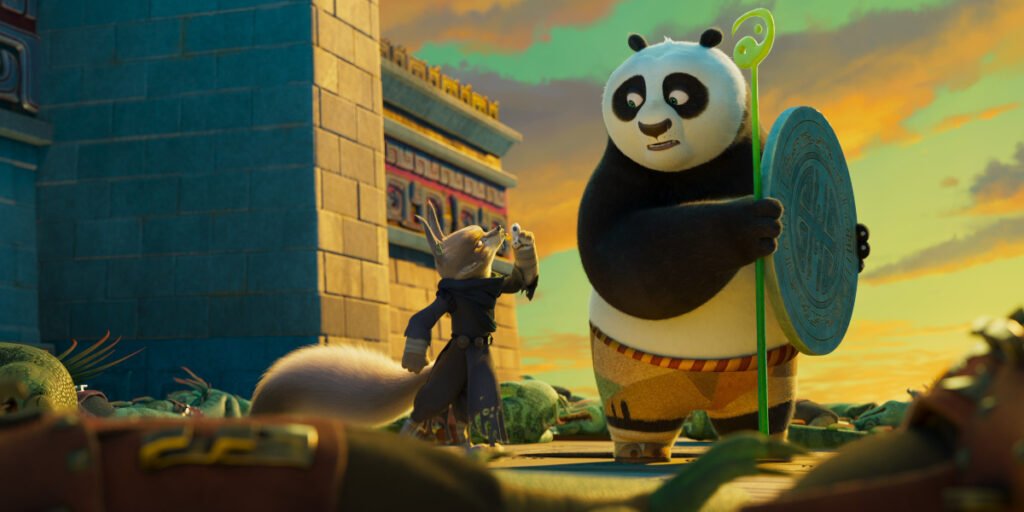
Eventually, after a weird run-in with a fish (Ronny Chieng) that lives in a pelican’s mouth (yes, the pelican is the mother of the fish) at a bar that uses rabbits as slave labor (the scene falls back on a wondrously dark rabbit stew pun several times), the story finds itself in Juniper City where it barrels toward its bumpy ending.
Here we meet Han (Ke Huy Quan), the hard-nosed armadillo who leads a chaotic band of underground grifters. As always with Quan’s projects, the film doesn’t contain enough of him; his ability to stand out in every scene he’s a part of due to his transcendent voice and ever-charming presence is something that should be studied.
Not to ever be outdone, Viola Davis brings the terrifying presence that pervades her role as Amanda Waller in the Suicide Squad and Peacemaker projects to her time as The Chameleon. While previous villains in the franchise have been hit or miss in terms of compelling backstories and motivations, The Chameleon manages to surpass any that came before her thanks to Davis’ performance.
This is a truly despicable character who outright states she only cares for people she can take advantage of and will leave a wake of destruction in her path without batting an eye (I’m not sure chameleons even have eyelids). It’s genuinely fun to watch her shapeshift into all manner of different animals, and the animation team does impressive work to make the evolutions engaging and zany while maintaining a realistic enough feel.
Even if the plot can feel a bit predictable at times, the humor and heart are more than enough to carry this adventure through to its end. Kung Fu Panda 4 isn’t afraid to dabble in the dark either, as evidenced by the young child in our row who whispered he was scared moments before standing up, peeled to the seat directly in front of him, riveted at the sight of the action sequence he had just witnessed.
That is to say, there are sure to be crowd-pleasing moments for audience members of all ages; the children will unknowingly laugh at the adult-leaning jokes while a lot of the child-themed humor is enough to at least warrant a chuckle. Some moments do feel a bit cookie-cutter, however, like a certain scene with durian fruit that will leave fans of Avatar: The Last Airbender shaking their heads at the lackluster portrayal of a now-famous meme.
‘Kung Fu Panda 4’ Isn’t Afraid To Be Different
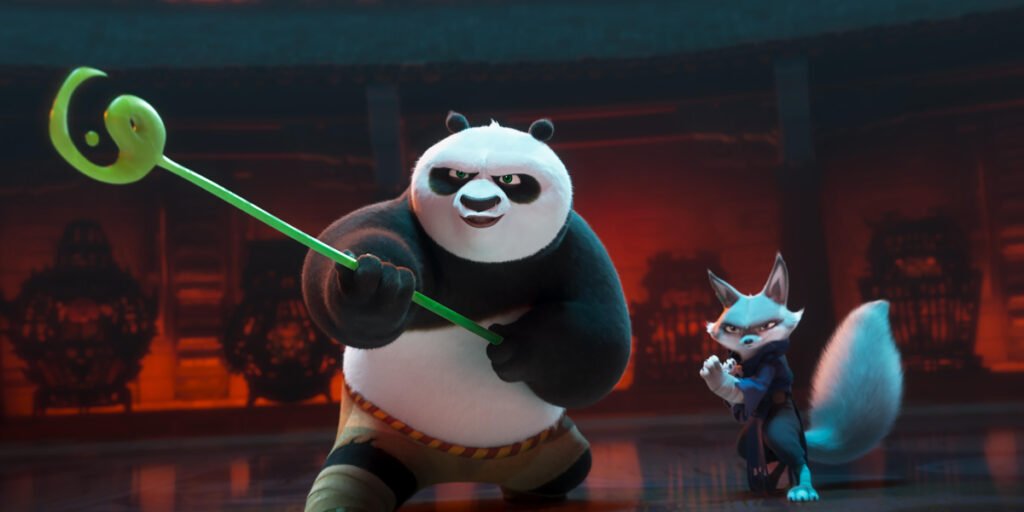
Adding to the chaos is a soundtrack by Hans Zimmer that can only be described as unhinged. A heavy flute instrumental version of Ozzy Osbourne‘s “Crazy Train” plays over a police chase through the streets of Juniper City while Jack Black’s own Tenacious D makes an appearance to cover Britney Spears‘ “…Baby One More Time” during a credits montage. These instances help drive home well-animated action sequences and charming character moments that are highlighted by a pillar of the franchise — great voice acting.
All of this culminates in a dramatic final battle that is more worried about cementing its characters’ growth and the legacy of the franchise than upping the stakes with mind-blowing fights, which ultimately works in Kung Fu Panda 4‘s favor (especially given Po’s immense power as the chi-wielding Dragon Warrior). This is not Tai Lung vs. Dragon Warrior 2.0, nor is it poorly crafted nostalgia bait. These beats have a purpose — Universal Studios wants audiences to know where the future of the franchise lies.
Kung Fu Panda 4 knows what it wants to be from the moment it starts. It’s fully aware the audience is going to miss fan-favorite characters so it works hard to double down on the humor, cuteness, and character moments. This is a movie that will make children incredibly happy and one that most adults will walk out of with a smile, too.
A lot rests on the shoulders of a legacy sequel to an immensely popular animated franchise. Kung Fu Panda 4 takes a lot of swings and ultimately lands enough to warrant its place as one of the best movies in the franchise. It’s about even with the previous installment, Kung Fu Panda 3, though neither can quite reach the lofty heights of the original — a film that has etched its name into the hall of fame of animated movies.
Follow the Agents of Fandom socials for all the latest entertainment news and reviews.
'Kung Fu Panda 4' Review
'Kung Fu Panda 4' ReviewThe Good
- Amazing performances, highlighted by Viola Davis and Ke Huy Quan.
- Animation in the franchise continues to stun with its beauty, opting for fun, new cutaway transitions during the action.
- The dynamic between James Hong's Ping and Bryan Cranston's Li is heartwarming.
- Most of the humor lands really well.
- The addition of a fun, new character for the future.
Could Be Better
- The story can be a bit predictable at times.
- The villain lacks the depth that could bring her to Tai Lung's status.
- A couple nostalgic bits don't hit as hard as they should.





